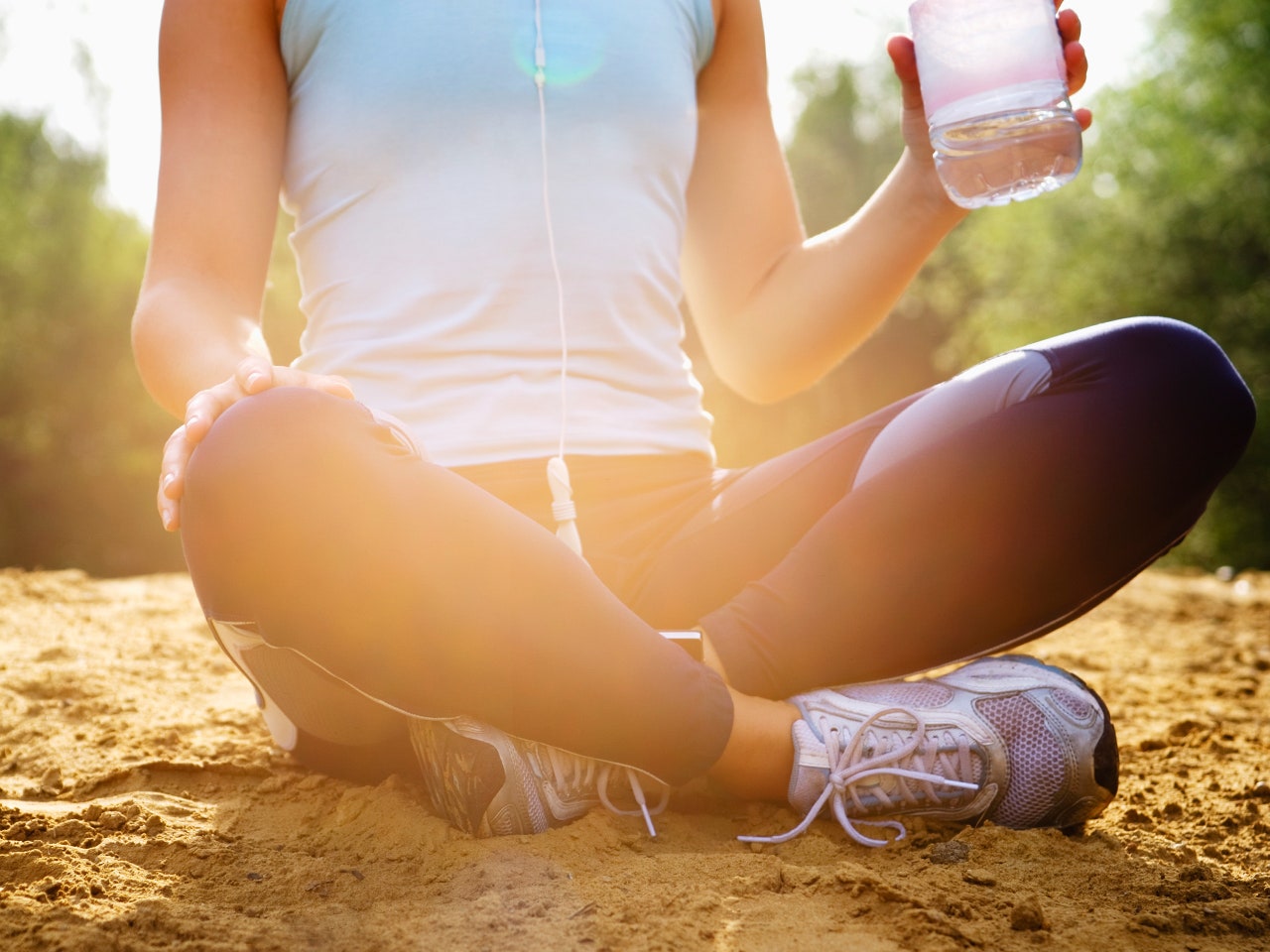In today’s edition of Health Mythbusters, let’s discuss that whole “you definitely need to drink more water” thing. It’s been drilled into you since you were a kid: Drink eight glasses of water a day, or else. The truth is a little more complex. On average, women need to consume about 11.5 cups of fluids per day, according to the Mayo Clinic. The catch is that this figure encompasses all fluid intake, including from beverages like coffee and that which you get from foods. (This makes up around 20 percent of the liquid you consume each day, per the Mayo Clinic.)
Adequate hydration is crucial for your body to operate the best way it should; every single cell you possess requires water to function, according to the Mayo Clinic. Ultimately, the way you feel is a good indicator of whether you’re well-hydrated or not, David Kaufman, M.D., director of Central Park Urology, a division of Maiden Lane Medical in New York City, tells SELF. Here are some signs you’re not giving your body enough water to do its job.
Urochrome is a pigment that helps give pee its color. When you don’t drink enough water, there’s plenty of urochrome in your pee, giving it that bright yellow color, Dr. Kaufman says. When your pee is diluted by water, it becomes less yellow because the urochrome is less concentrated. “The more water you drink and the better hydrated you are, the clearer your urine,” Dr. Kaufman says.
This isn’t just about aesthetics. When your urine gets too concentrated, you’re at a higher risk for issues like kidney stones and bladder irritation that can make you feel the need to pee too often.
Not drinking enough water can lead to frustrating fatigue. Adequate water intake is an essential part of regulating your blood volume, Marc Leavey, M.D., an internist at Baltimore’s Mercy Medical Center, tells SELF. The leading theory behind why dehydration causes fatigue is that if your blood volume drops, your heart has to work harder to distribute the blood you do have around your body, which can make you feel sapped of energy, he explains.
Your brain’s hypothalamus controls both hunger and thirst, according to the U.S. National Library. It’s no surprise, then, that people often think they’re hungry when they’re actually thirsty, Dr. Leavey says. That’s why one common mindful eating recommendation is to drink water before meals. It can help you tune in to how hungry you actually are.
Experts aren’t sure why dehydration can cause headaches, but one main theory is that it has to do with cerebrospinal fluid, which surrounds your brain. Changes in your body’s level of hydration can affect this fluid, causing it to go down, Dr. Leavey says. That can irritate the various blood vessels, muscles, and membranes in your head, which can trigger a headache. “The brain itself does not have any pain sensors; it is the surrounding and supporting structures that lead to the pain,” Dr. Leavey explains.
Your saliva helps keep your mouth clean, and when you’re not drinking enough fluids, you’ll have less saliva than usual, Dr. Leavey says. As a result, your mouth can’t clean itself as well as it should, leaving you with bad breath, Mark S. Wolff, D.D.S., Ph.D., a professor and chair of the Department of Cariology and Comprehensive Care at the New York University College of Dentistry, tells SELF.
When your body is dehydrated, it has to decide which of your organs needs fluids the most. When compared with things like your heart and lungs, your skin isn’t high on the must-hydrate list, New York City dermatologist Doris Day, M.D., author of Beyond Beautiful, tells SELF. “Your skin will give up water to support the rest of your body,” she says. As a result, your skin and lips can feel pretty parched. Luckily, drinking more water can clear up the issue within hours, Day says.
First things first: If you’re experiencing vaginal dryness, it doesn’t automatically mean you’re dehydrated. It’s more likely to be a hormonal issue. Estrogen helps maintain your vagina’s lubrication, according to the U.S. National Library of Medicine, so a drop in this hormone is actually the most common cause of vaginal dryness, which can lead to itching, burning, and pain during sex.
But if you’re already dealing with vaginal dryness, being regularly dehydrated can just make it worse, Sherry A. Ross, M.D., a women's health expert and author of She-ology: The Definitive Guide to Women's Intimate Health. Period., tells SELF. Again, that doesn’t mean chugging a lot of water is the perfect fix for your vaginal dryness. Instead, you should talk to your doctor to figure out a better way to tackle the problem.
Related:

